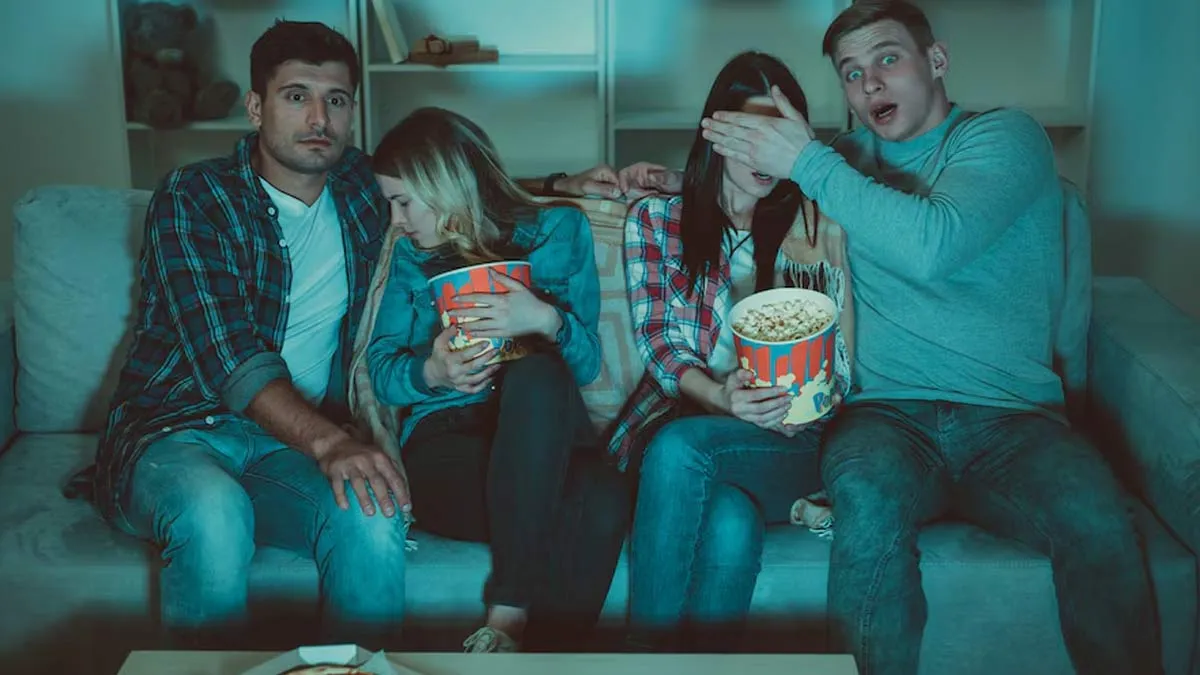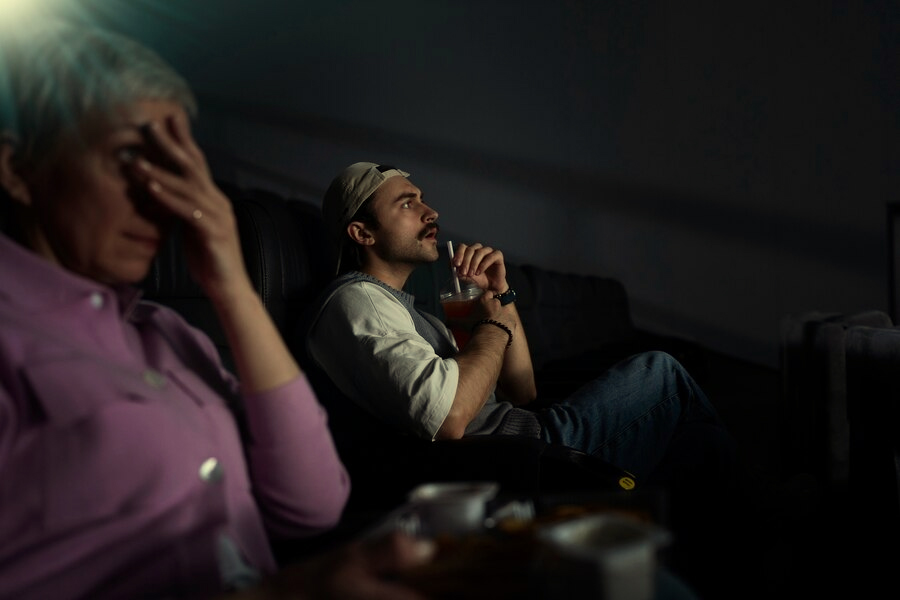
Around 6.8 billion people worldwide possess a smartphone, which amounts to nearly 87% of the world's population. These statistics are enough to make one understand that exposure to unwanted content is inevitable, and that these dangers are lurking around children too. On the pretext of watching action movies, we end up being exposed to gory and violent images that don’t seem to do much on the surface level but actually wreak havoc on our mental well-being in the backdrop. Here’s everything you need to know about the impact of exposure to gore and violence.
Table of Content:-
CHECK YOUR
MENTAL HEALTH

RELATED: Is It Normal To Be Sad For No Reason? Expert Answers
What Is Classified As Gore?

In its broadest sense, gore content includes explicit representations of violence, physical injury, or mutilation. It is an intense and frequently startling depiction of the human body in its most vulnerable and injured condition. Be it raw crime documentaries or media footages, gore has permeated many mediums and reached viewers of all ages and social standing.
Impact On Memory And Attention
It can also affect our focus and attention. Gore grabs our attention with its visceral and startling qualities. This could eventually alter the way we absorb information, which could make it more difficult to concentrate on vital but less exciting tasks.
Alterations may also occur in memory and information processing. We are more likely to remember graphic visuals than other kinds of information, which is why our memory may become biassed as a result, making it easier to recall violent or graphic events than neutral or pleasant ones.
Impact On Children
-1736770704866.jpg)
Regularly exposing kids to violent content on screens can make them more hostile. Sometimes children can become more aggressive after seeing a single violent show. If children witness realistic, frequently repeated, or unpunished violence on their screens, they are more inclined to imitate what they see.
Concerns over violent content in children's television led to the creation of the Surgeon General's Scientific Advisory Committee on Television and Social Behaviour in 1969. The committee's task was to examine how violence on television affects viewers' beliefs, values, and conduct. According to the findings of their study, which were later examined by the National Institute of Mental Health in 1982, watching violent television had several significant negative effects.
- Children may become less sensitive to the suffering of others.
- Children may develop an increased fear of their environment.
- Children may be more prone to behave destructively or angrily towards others.
Stress
Acute stress (AS) and posttraumatic stress symptoms (PTSS) are linked to media exposure to collective trauma. Emotional anguish and trauma can be triggered by exposure to goriness and graphic imagery. The way the human brain is structured to respond to traumatic experiences, seeing violence, especially when it is realistic or exaggerated, can cause strong emotional reactions. The ensuing anguish could show up as powerlessness, rage, despair, or anxiety.
Desensitisation To Other’s Plight

In addition to increasing aggressive thoughts, rage, and conduct, exposure to violent content might reduce empathy.
Bullying and cyberbullying among both boys and girls have also been closely linked to screen violence viewing time. Furthermore, violent behaviour in older adolescents and young adults seems to be significantly predicted by aggressive behaviour in childhood.
According to other studies, watching violent media can make people less sensitive to violence in the actual world. It has also been shown that some people find watching violent media to be entertaining and does not cause the anxiety arousal that one might anticipate from such imagery.
RELATED: Digital Clutter And Mental Health: Expert Lists Its Signs, Impact, And Solutions
What Can You Do To Minimise Exposure?
Prioritising mental health is essential when consuming media that contains gore. Understand your emotional boundaries and avoid material that makes you feel overwhelmed or upset. Emotional distress can also be managed by practicing relaxation methods like deep breathing or mindfulness activities. Most importantly, keep yourself and your loved ones away from any sort of media exposure that could potentially harm them.
Also watch this video
How we keep this article up to date:
We work with experts and keep a close eye on the latest in health and wellness. Whenever there is a new research or helpful information, we update our articles with accurate and useful advice.
Current Version